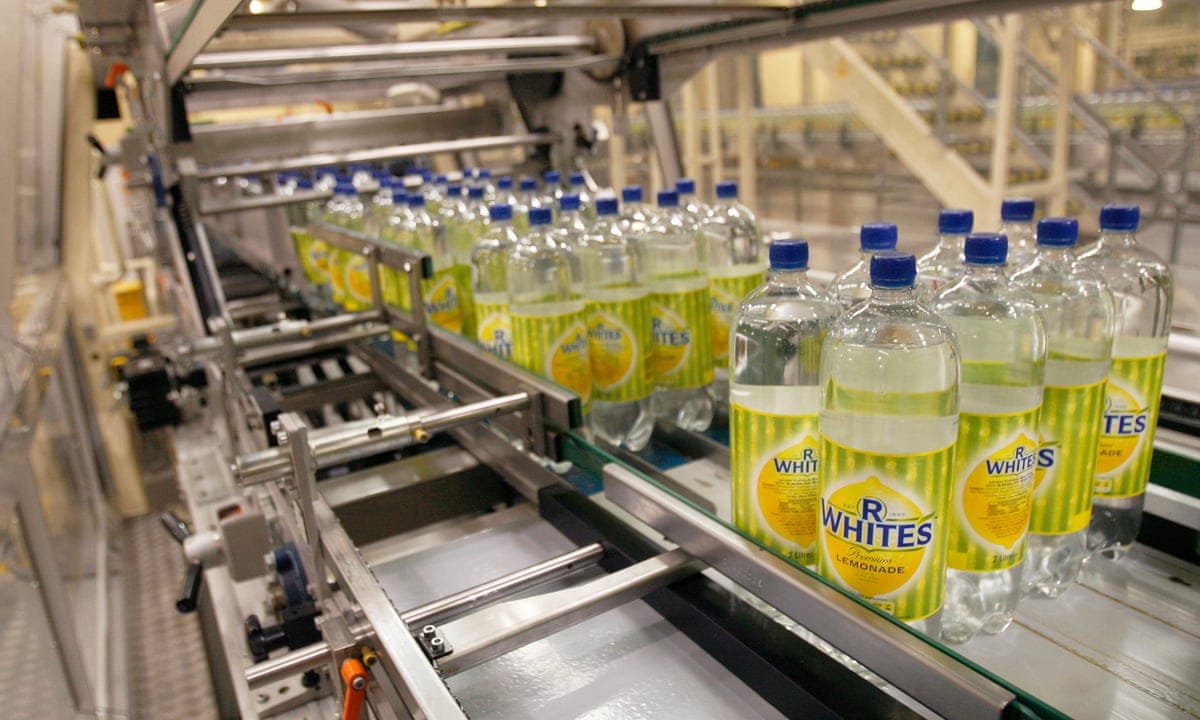The United Kingdom's beverage industry has witnessed a significant development as the Danish brewery giant, Carlsberg, finalized an agreement for acquiring Britvic in a deal valued at approximately £3.3 billion.
Britvic, renowned for its diverse range of non-alcoholic beverages such as J20, Robinsons, and R White's lemonade, has accepted Carlsberg's offer after previously rejecting similar proposals that were considered undervaluing the company. The proposed acquisition comprises £12.90 per share in cash along with a special dividend of 25p per share. This amalgamation will result in the formation of an expanded entity named Carlsberg Britvic.
The announcement led to a rise in Britvic's stock value by 4.5% on Monday, elevating its position among FTSE 250 constituents. However, this deal requires approval from at least 75% of the existing shareholders through a vote.
Established initially as British Vitamin Products Company in the early 1930s, Britvic has expanded over several decades to include an array of brands present across more than 100 nations including Brazil, France, and Ireland. The company holds exclusive licens Written by: Ashley Hollingsworth
Reading time (approx.): 5 minutes
In a recent study published in the Proceedings of the National Academy of Sciences (PNAS), researchers discovered that an unconventional protein may have important implications for treating cancer. This is especially true considering current cancer treatments are not always effective and can even be harmful to patients' health.
The team, led by Dr. Ravi Kodali from the University of California-San Diego (UCSD) School of Medicine, found that a protein called hnRNPA2/3 is activated in cancer cells when they become stressed. They also discovered its presence can be used to monitor tumor progression and patient response to therapies.
In the study, researchers examined 416 breast cancer cell lines to identify changes associated with treatment resistance. In total, hnRNPA2/3 was found in around two-thirds of these samples. When the team used drugs known as histone deacetylase (HDAC) inhibitors to target this protein, tumor growth decreased significantly.
Dr. Kodali said that their findings are critical because it is "the first time a single protein has been identified across multiple cancer types and linked with treatment resistance." He added: "We found that hnRNPA2/3 activation is associated with drug-resistance, suggesting that blocking this pathway can lead to the death of tumor cells."
Cancer researchers have previously discovered various proteins known as histones that are often rearranged in cancer. Histones play a critical role in organizing DNA within our chromosomes and help regulate gene expression. When they are damaged or mutated, this can affect the way genes function -- including those responsible for controlling cell growth and division.
Dr. Kodali's team found that hnRNPA2/3 belongs to a family of proteins called heterogeneous nuclear ribonucleoprotein A (hnRNP). They also discovered that when cancer cells become stressed, they produce more hnRNP -- which can lead to changes in histone structure.
The team examined patient tissue samples and found that the level of expression increased with tumor stage in breast cancer patients. Additionally, higher levels were associated with poorer prognosis for patients whose disease spreads beyond their initial site (metastasis). Patients who did not respond well to treatment also showed elevated levels of hnRNP.
Dr. Kodali said that it is likely these changes occur when cells become resistant to treatments. He added: "We believe this could be the first step in developing a test to measure how effective cancer therapes will be for individual patients."
The team's next goal is to identify compounds that can specifically target hnRNP and determine whether these drugs effectively suppress tumor growth. They also plan to investigate other types of cancer -- including lung, prostate and colorectal -- to see if the same mechanism occurs in each disease type.
"If we have a biomarker for this pathway that is activated across different cancers then it will be helpful," Dr. Kodali said. "We want to develop therapies to target hnRNPs so they become more effective cancer treatments."
The findings are published in PNAS on October 15, 2018.
Read next

Ryanair plane had only six minutes of fuel upon Manchester landing, records show
Flight Narrowly Avoids Disaster After Storm Diversion
An inquiry has been launched after a Ryanair flight, struggling against severe winds during storm Amy last week, landed at Manchester Airport with only six minutes’ worth of fuel remaining.
The aircraft had been transporting passengers from Pisa, Italy, to Prestwick, Scotland, on

"Qantas customer data for 5 million exposed as hackers release info post-ransom deadline"
Hackers Leak Personal Data of 5 Million Qantas Customers on Dark Web
A cybercriminal group has released personal records of 5 million Qantas customers on the dark web after the airline did not meet their ransom demand.
The breach is part of a larger global incident affecting over 40 companies,

Investors flee record-high UK stocks as EU set to hike steel tariffs
Investors Withdraw Record Sums from Equity Funds Amid High Market Valuations
Data reveals that investors in the UK have withdrawn an unprecedented amount of money from equity funds over the past three months, driven by concerns over soaring stock market valuations.
According to the latest figures from Calastone, the largest

